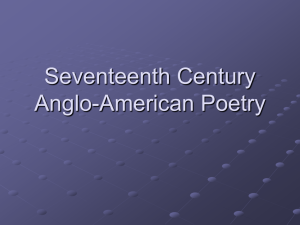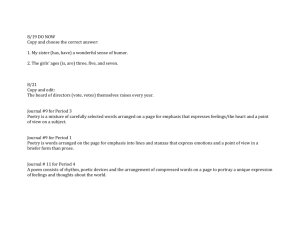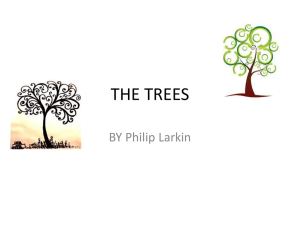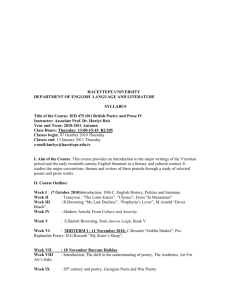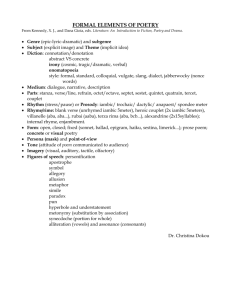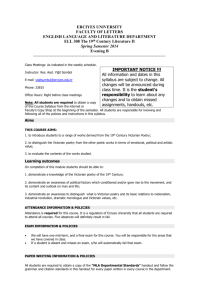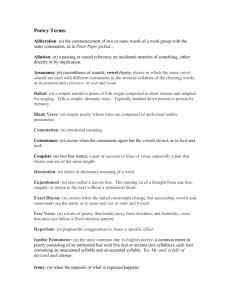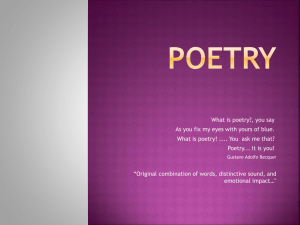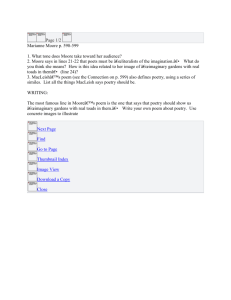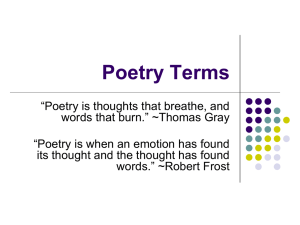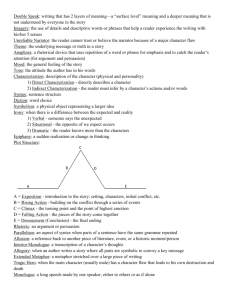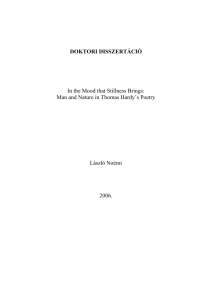Things to know for test 1.doc
advertisement
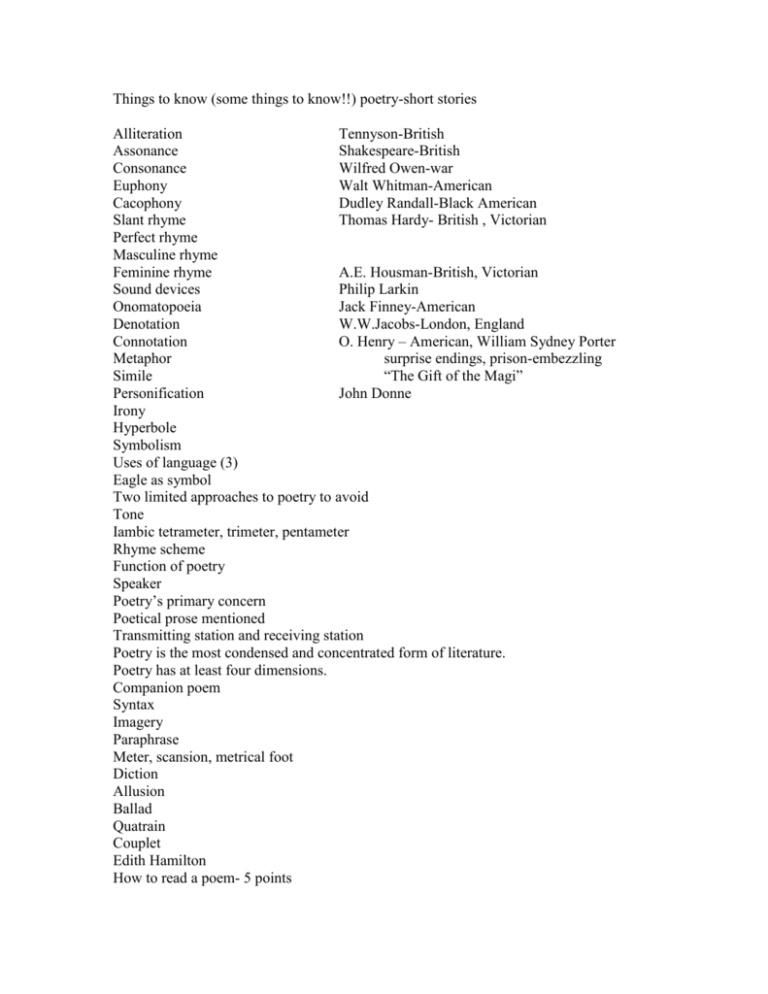
Things to know (some things to know!!) poetry-short stories Alliteration Tennyson-British Assonance Shakespeare-British Consonance Wilfred Owen-war Euphony Walt Whitman-American Cacophony Dudley Randall-Black American Slant rhyme Thomas Hardy- British , Victorian Perfect rhyme Masculine rhyme Feminine rhyme A.E. Housman-British, Victorian Sound devices Philip Larkin Onomatopoeia Jack Finney-American Denotation W.W.Jacobs-London, England Connotation O. Henry – American, William Sydney Porter Metaphor surprise endings, prison-embezzling Simile “The Gift of the Magi” Personification John Donne Irony Hyperbole Symbolism Uses of language (3) Eagle as symbol Two limited approaches to poetry to avoid Tone Iambic tetrameter, trimeter, pentameter Rhyme scheme Function of poetry Speaker Poetry’s primary concern Poetical prose mentioned Transmitting station and receiving station Poetry is the most condensed and concentrated form of literature. Poetry has at least four dimensions. Companion poem Syntax Imagery Paraphrase Meter, scansion, metrical foot Diction Allusion Ballad Quatrain Couplet Edith Hamilton How to read a poem- 5 points Purpose of caesuras Colloquial Evidence Theme Speaker (shift?) Tone (shift?) Structure Style Novels by Hardy Exposition Tom Benecke Interoffice Memo Lexington Avenue Clare Climax Conflict Resolution Foreshadowing Mr. and Mrs. White Herbert Sgt. Major Morris Maw and Meggins Mood created how Mr. Easton Miss Fairchild Leavenworth Denver Functional setting Counterfeiting symbol Marshall Significance of title Local color Ballad Aubade Iamb juxtaposition Enjambment Caesura “The mother smiled to know her child/Was in the sacred place” “He crasps the crag with crooked hands” “Ah, were I courageous enough/To shout Stuff your pension!” “While greasy Joan doth keel the pot.” “Get stewed/Books are a load of crap” “the blood/Come gargling from the froth-corrupted lungs” “O word of fear/Unpleasing to a married ear!” “Four beating wings, two beaks, a swirling mass…/rumbling, turning” “But that smile was the last smile to come upon her face” “…all he was ever going to have out of life he would then, abruptly have had. Nothing could ever be added to his life….a wasted life.” “I shot him dead because---/Because he was my foe” “the chap/Who’s yellow and keeps the store/Seem far too familiar.” “Your girl is well contented/Be still, my lad, and sleep” “Must business thee from hence remove?” “It seems to me I’ve got all I want.” “No, yesterday he went to wed/One of the brightest wealth has bred” “Six days of the week it soils/With its sickening poison” “They admit no liability at all, but…” “…so now you’re one of those dashing Western heroes, and you ride and you shoot…” Do you see poems ideal for compare and contrast? What is the purpose of writing each poem? How does each speaker feel/ What is the tone? Example: “Toads” and “A Study of Reading Habits” What ties them together? Works: “Hearts and Hands” O. Henry “The Monkey’s Paw” W.W. Jacobs “Contents of the Dead Man’s Pocket” Jack Finney “The Eagle” Tennyson “Winter” Shakespeare “Dulce et Decorum Est” Wilfred Owen British “Spring” Shakespeare “The Dalliance of Eagles” Walt Whitman American “Ballad of Birmingham” Dudley Randall “The Man He Killed” –Hardy “A Study of Reading Habits” Philip Larkin “Is My Team Plowing” A.E. Housman (Victorian-contemporary of Hardy) “Break of Day” John Donne “Toads” Philip Larkin “Ah, Are You Digging on my Grave” Hardy (Victorian)
